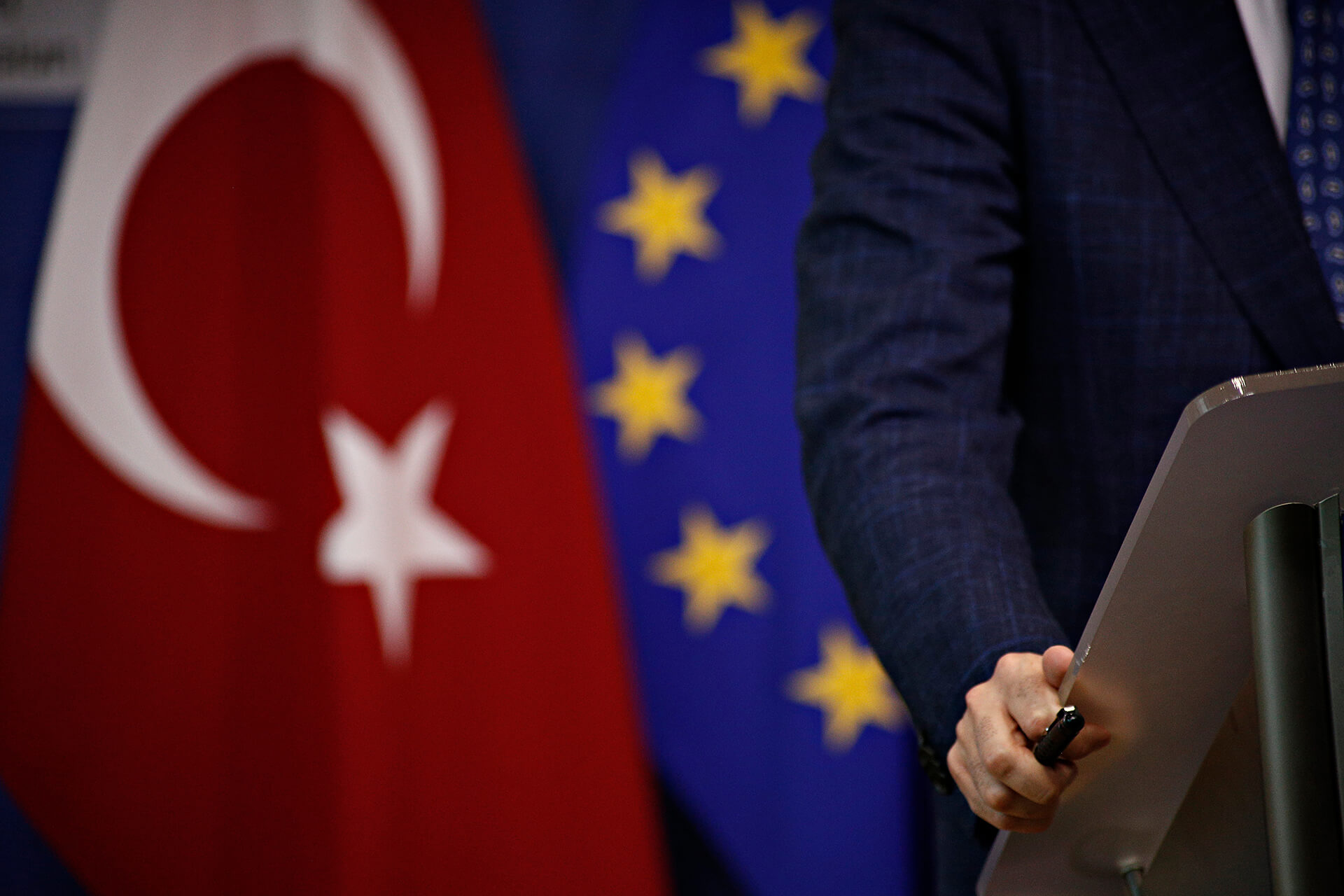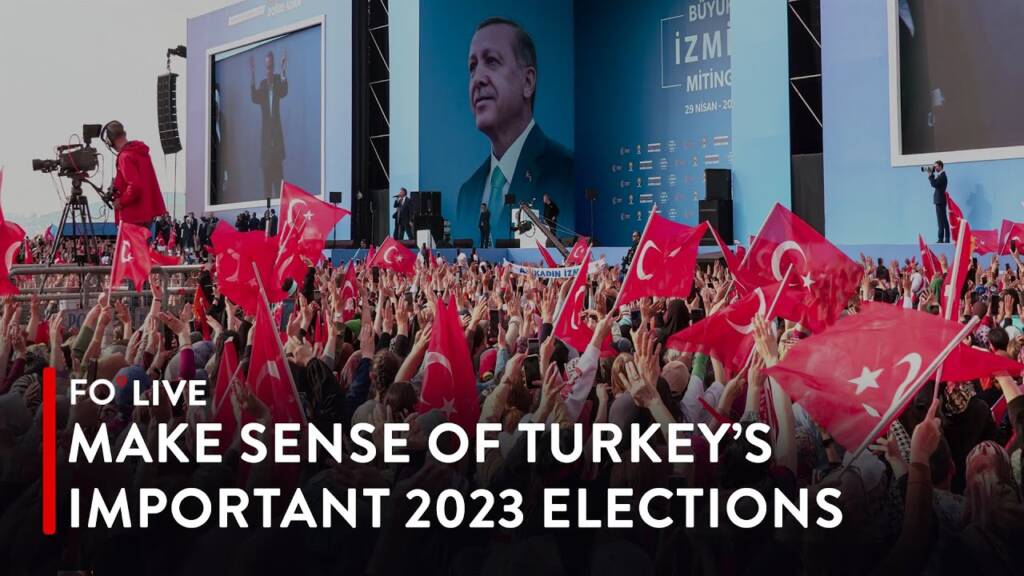Turkish President Recep Tayyip Erdoğan recently suggested that the EU should reopen accession negotiations with his country. The proposal has been met with near-universal incredulity in the West. Observers today see Turkey as a far cry from suitable membership material. And they place the blame for that not only on one side, but largely on one man: Erdoğan himself.
European diplomats are now routine in their assessment that Erdoğan’s Turkey is not the kind of place — considering the state of human rights, freedoms in public life, freedom of the press, separation of the institutions of state — that can seriously expect to return to accession negotiations. Yet there is considerable shortsightedness in this “moral high ground” approach to Turkey’s long-stalled EU accession.
Certainly, to take just one example, the treatment of the country’s Kurdish minority since at least the failed coup attempt of 2016 has been repressive in the extreme.
Many supporters of the ruling Justice and Development Party (AKP) are keen to point out that the only reason the opposition lost the recent elections in May 2023 is because they pandered to terrorists, in the form of the Peoples’ Democratic Party (HDP), a political party aligned with Kurdish interests, and connected with the outlawed Kurdistan Workers’ Party (PKK) separatist insurgency.
However, this narrative is a false one. If engaging with Kurdish political groups were so electorally suicidal, how is it that the same Recep Tayyip Erdoğan led a thawing in the cultural and political climate for Kurds in the late 2000s, including peace talks with jailed leader of the PKK, Abdullah Öcalan, and yet continued to win elections? This fact reveals Erdoğan as a far more opportunistic, and less dogmatic, leader than is often supposed. And why did he support this engagement with Kurdish political figures? A key driver was the reform agenda of the EU accession negotiations.
The trouble with the EU
The truth is that the EU itself swung Turkish politics decisively in a nationalist and repressive direction. The reason lies in the fact that many in the EU — most conspicuously France and Austria — were never genuine in their promise of accession to the bloc. The strain of Islamophobia in both states, and to a lesser extent in Germany and elsewhere, made even a squeaky clean Turkey unpalatable within what many still see as an essentially Christian club.
Brexit was, ironically, a further blow to Turkey. The year 2016 stands as the moment the EU slipped irrevocably from Turkey’s grasp. With the departure of the UK, a key supporter of Turkish accession, and the attempted coup d’etat in Turkey, the fate of the nation was sealed. It is a singular irony that, in the run-up to the Brexit vote in the UK, the Leave campaign distributed leaflets warning Britons that Turkey would soon join the bloc, sending millions of poor Turks to British shores. Nothing could have been further from the truth.
As a result of European disingenuousness, the goal of EU accession has lost its appeal. With it, the incentive to reform dissipated. The incentive provided by EU accession is an invaluable asset of the European project, as is being observed in Ukraine today. In Turkey, it was a powerful force, with membership being hugely popular not only among elites but among ordinary Turks as well. With no prospect of membership, Erdoğan’s ruling AKP turned to hardline nationalists to shore up its parliamentary majority. The result is a Turkey that looks far less palatable to the bloc than the one it quietly rejected in the late 2000s.
This moral high ground approach to foreign policy is still counterproductive for the EU, even at this late, late stage. When Turkey set out on its quest for EU membership in the 1950s, it was far from a model democratic nation. Indeed, it went through several coups and repressive military juntas, and the treatment of vulnerable groups such as the Kurds was easily equal to the treatment administered by the current government. Accession talks were not based on what Turkey was, but what it might become. The same could easily be applied today.
Ukrainian exceptionalism
It is striking that Ukraine, which is now seeking EU membership in earnest, is in many respects a more unpalatable prospect than Turkey would be. And yet it appears less of a stretch for the European imagination. In much the same way that Greece and Cyprus received membership despite serious shortcomings in terms of economic and political governance, Ukraine appears to find itself in a different passport lane from Turkey. The worry is that this double standard may be rooted in cultural perceptions that do not ultimately serve Europe’s best strategic interests.
One cannot turn back the clock. And yet, if the EU at least observed where its strength actually lay and where its best interests lay, it might start to approach even the Turkey of Erdoğan with a little more of the long-term strategic vision necessary to avoid the inevitable repercussions of lost influence. For many decades, the carrot of EU accession served as a powerful tool in EU relations with Turkey and many other states. Without it, the ultimate result is likely to be long-term EU decline, while its borders become ever more insecure, its internal population more paranoid and introspective and its ability to project power abroad weaker.
[Anton Schauble edited this piece.]
The views expressed in this article are the author’s own and do not necessarily reflect Fair Observer’s editorial policy.
Support Fair Observer
We rely on your support for our independence, diversity and quality.
For more than 10 years, Fair Observer has been free, fair and independent. No billionaire owns us, no advertisers control us. We are a reader-supported nonprofit. Unlike many other publications, we keep our content free for readers regardless of where they live or whether they can afford to pay. We have no paywalls and no ads.
In the post-truth era of fake news, echo chambers and filter bubbles, we publish a plurality of perspectives from around the world. Anyone can publish with us, but everyone goes through a rigorous editorial process. So, you get fact-checked, well-reasoned content instead of noise.
We publish 2,500+ voices from 90+ countries. We also conduct education and training programs
on subjects ranging from digital media and journalism to writing and critical thinking. This
doesn’t come cheap. Servers, editors, trainers and web developers cost
money.
Please consider supporting us on a regular basis as a recurring donor or a
sustaining member.
Will you support FO’s journalism?
We rely on your support for our independence, diversity and quality.








Comment